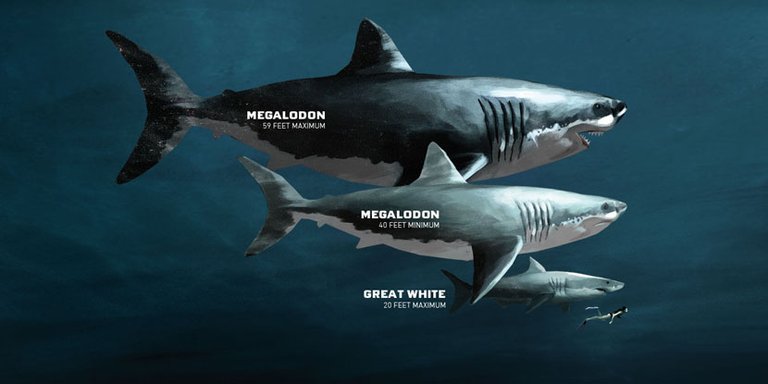Lets say that you have just cut yourself while swimming in the ocean. How much time do you have before the shark gets to you?
It depends three few factors.
The first factor is the shark's sense of smell. Depending on the species, sharks can detect one drop of blood in millions of drops of water, as far as few hundred metres away.
Secondly, it depends on how fast the shark can swim. For example, the great white shark is capable of speed bursts reaching 40 km/h, while the fastest Shortfin mako shark can swim as fast as 50 km/h. They both have a history of lethal attacks on humans.
The last factor is the speed and the direction of the current. If the shark is swimming towards you against the current, it will sense your blood quicker but it will take longer to reach you. If the predator is swimming with the current, it will take longer for the smell to reach its nasal sensory cells but the shark will swim much faster. That means that the lower the speed of downstream current, the more time you have got to escape.
The sharks have been around for at least 420 millions years and they had existed before any vertebrates walked on land. One of the most famous sharks that is Megalodon. According to 2013 study it could reach an astonishing length of up to 20 metres! But you don't have to worry, it is estimated that it became extinct at least 2.6 to million years ago.
Another fascinating and also extinct shark was Helicoprion. It was twice the size of great white shark and had very unusual looking jaw that looked like circular saw blade.

[Helicoprion. Image Source]
Today, I learned!
Other sources used but not included under the hyperlinks:
American Museum of Natural History - "Sharks and Rays: Myth and Reality".
If you have enjoyed this article, please also check out:
-logic


Today we have the technology to wipe out the nimble mosquito.
http://www.oxitec.com/programmes/united-states/
There is a UK based company that has already cleared vast areas of rural areas of brazil by shamming the female of the species into copulating with a mutated male (almost certain males don't bite, only the females to reproduce) that kills all the offspring by turning off the gene/s that allow the baby nymph mosquito into become a flying killer. Essentially culling off 99.5% of a single species of mosquito. All this with no (comparable to the cost of lifetime care of a microcephalic human being from) after a zika pregnancy (conception within 7-8 wks of infection risk of birth defect.) Florida Keys was the first on the books to roll this process out but the local pesticide business thought it might not be a good idea. Loss of revenue would be my guess. But Oxitec has a proven technology that eliminates this insipid cesspool of morbidity. Serious, we need to exterminate this creature. Without mosquitos diseases like zika, chikungunya and west nile virus are a goners just like small pox. There is not way for these disease to get transmitted without the mosquito. You can have sex with someone with an active malarial infection and not contract it for crying out load.
As humans, all we have is our brains to survive. That's it. We need to be as fervent as possible on protecting our individual cognition. And if environmentalist are concerned at what may be lost if the species is to die off, just do the same thing we did with small pox. Keep a few frozen in the basement of the CDC for future experimentation and the likes.
Thanks for your comment. That is correct. I have watched few VICE documentaries about it.
I agree about exterminating this species although we need to properly assess influences on the ecosystem first.
Damn mosquitos and the itch their bite cause can bring serious complication too.
That's a special post for me at the moment... Will be for a week in an area where taking Malaria pills is recommended :)
Be careful with new vaccines !! Ah! ah!
The malaria pills are actually not a vaccine. It is more like following a treatment a priori, just in case.
A week? Try living here for a year or two. Marlaria is bad, but dengue makes you pray for death.
There has been an advancement in first Malaria vaccine. The trials were introduced last year.
So is your presenation/conference about tropical diseases?
No, about particle physics as usual. But in a fancy place :)